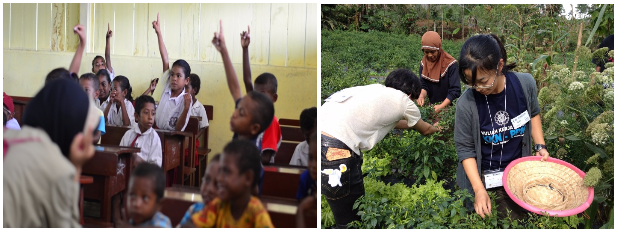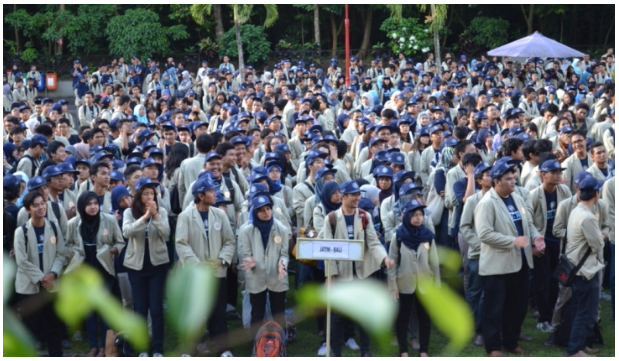Two years after the university’s establishment in 1949, Universitas Gadjah Mada (UGM) has started to deploy its students to do Community Service Program. In a decade period, no less than 1218 students have been commissioned, resulting in 109 newly established high schools in areas outside of Java. This was the initial form of what came to be known today as Student Community Services (SCS). Following UGM’s law expert, Prof. Koesnadi Hardjasoemantri’s,
recommendation in 1971 the program was then made compulsory for UGM undergraduate students.
As came to be known as the “Populist University”, “University of Pancasila”, and “University of Struggles”, UGM has the moral obligations to maintain the quality of SCS program. Hence, in 1999, a thematic SCS program emerged to propose alternative solutions towards Indonesian monetary crisis in the preceding year. Entering the second millennium, UGM shifted SCS’s development paradigm into research-empowerment paradigm to contextualize the program as a respond to the continuous globalization pressures on a society that was economically weak.
Thus, in 2006, the program name was changed into Student Community Services – Community Empowerment Learning (SCS-CEL).


Since then, SCS-CEL has been a dynamic and responsive national initiative program encouraging sustainable independence and welfare for the Indonesia grass roots levels in nearly all 34 provinces. The program is now made for Indonesian students and foreigners, with a total of 32 universities from 15 countries already having participation, namely: Norway, South Korea, Japan, Australia, Austria, France, Germany, etc. Both Indonesian and international students collaborate in putting together effective and applicable programs which derived from several focuses of interest, such as: improving education in remote areas, community-based health policy, women empowerment, disaster early warning system and mitigation, cultural and local wisdom-based natural resources conservation, cultural-based conflict resolution, rural governance and administration, enhancement of law and political awareness, small and medium enterprises development, and sustainable agricultural production. In 2016 alone, SCS- CEL program was implemented in 33 provinces, 108 districts, 179 sub districts, and 276 villages. In total since its beginning, the SCS-CEL program has dispatched more than 200.000 students to all provinces in Indonesia.
